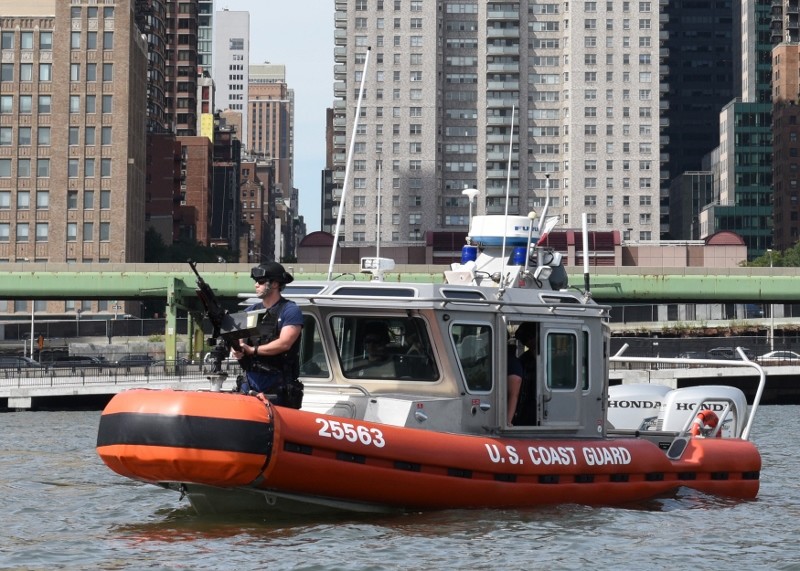Last week, U.S. Senators Maria Cantwell (D-Wash.), Roger Wicker (R-Miss.) and Tammy Baldwin (D-Wis.) introduced legislation that would reauthorize the Coast Guard for fiscal years 2022 and 2023.
“The Coast Guard keeps our maritime economy moving and our ports and waterways secure. This bill makes the investments needed to support that core mission, and will also help the Coast Guard crack down on illegal fishing, improve oil spill response, and bolster our nation’s presence in the Arctic,” Sen. Cantwell said in a statement. “The bill also invests in the Coast Guard’s most valuable resource: its people. We must expand training and education opportunities for Coasties and improve housing, childcare, and medical services so that the Coast Guard can recruit and retain a cutting edge and diverse workforce.”
“The American people depend on the U.S. Coast Guard now more than ever,” said Sen. Wicker. “The Coast Guard can always be counted on to save American lives, protect our homeland, and keep maritime transportation flowing safely, but it is time we do better for our service members. This bill would take a major step toward addressing needs such as deteriorating buildings, outdated equipment, and a lack of adequate funding.”
“Our United States Coast Guard members protect and secure our Great Lakes and are a crucial piece to keeping Wisconsin’s maritime economy moving forward,” said Sen. Baldwin. “Inadequate icebreaking capacity in the Great Lakes costs us thousands of American jobs and millions in business revenue, and this bipartisan legislation invests in the icebreaking resources needed to support our maritime industry and our Made in America economy. This critical legislation will help mitigate devastating climate-related events, invest in climate resilient Coast Guard infrastructure at places like Sturgeon Bay and will increase support for childcare, housing, and education needed to do right by our service members and veterans.”
The Coast Guard Authorization Act of 2022:
- Would authorize $841 million for the third Polar Security Cutter and $20 million to establish the Arctic Security Cutter program office. This represents the first major step toward building the next generation of medium polar icebreakers to support maritime transportation, tourism, research, national security, and environmental protection missions in the emerging Arctic.
- Would authorize $3 billion to address infrastructure repair and replacement backlogs. It would also require better transparency regarding the outstanding shoreside infrastructure needs by requiring an annual submission to Congress. This will allow members of Congress to better advocate for funding to address projects in their states and districts, including some of the Coast Guard’s unfunded priorities for fiscal year 2022.
- Would improve oversight and investigations of sexual assault and harassment in the maritime industry and within the Coast Guard. The bill provides the Coast Guard the authority to revoke mariner credentials if the mariner has committed certain sex crimes. It defines sexual harassment and establishes a process for mariners to report crimes to the Coast Guard. The bill would also strengthen Coast Guard policy to ensure that members who are victims of sexual assault are provided care as soon as possible when deployed upon a vessel, or serving in a remote location. It would expand penalties for the failure to report a sexual assault and harassment at sea.
- Would expand the Coast Guard childcare subsidy program, which helps Coast Guard families pay for childcare services. The bill would authorize $25 million (a 56% increase over current authorization) and expand eligibility so families are able to use the subsidy for additional types of childcare, such as nannies and multigenerational support.
- Would improve access to medical care by authorizing research into expanding telemedicine access for members stationed in remote units like Cape Disappointment. The legislation would also establish a behavioral health policy and raise the limit on Coast Guard members permitted to be enrolled in post-graduate programs, increasing the number of Coast Guard members receiving training in the medical field.
- Would require the Coast Guard to study and develop a plan to improve access to housing.
- Aims to promote the representation of women and racial or ethnic minorities within the Coast Guard. It would require the Coast Guard to report to Congress on actions taken in response to the 2021 RAND representation report, develop a 10-year strategy to enhance diversity through recruitment and accession, and establish a partnership program with an institution serving underrepresented communities. The bill would also expand the Coast Guard Junior ROTC Program to include partnerships in each Coast Guard district across the nation.
- Would grant the Coast Guard temporary authority to allow for autonomous vessels to be used for space recovery operations in certain circumstances. This will improve safety as spacecraft return from space.
View the bill text here.
Read the section-by-section here.





